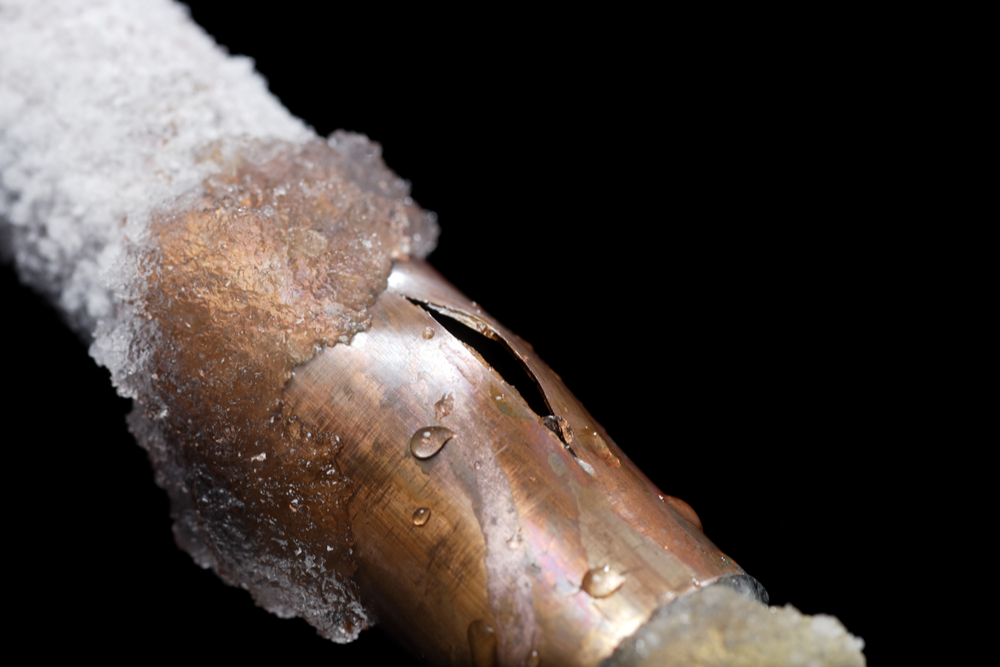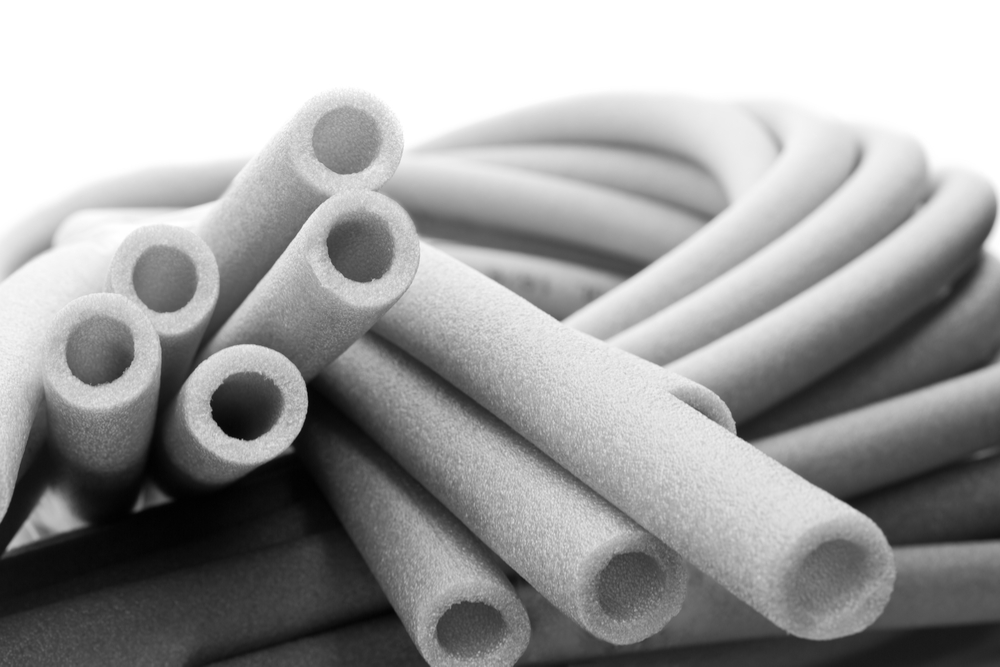When water freezes to ice, it expands, but it can be a very costly lesson in physics if that expanding water is in the metal or PVC pipes in your home, because while the water expands, those pipes do not.
When water freezes inside the metal or PVC pipes in your home, those pipes can burst, and you can have a very serious situation involving extensive water damage.
The easiest way to deal with frozen pipes is taking precautions before they freeze that will prevent them from freezing.

Cover Spigots
In our area, temperatures seldom drop low enough for long enough that you have to take exceptional precautions with your outdoor spigots, but that doesn’t mean you can leave them alone.
Hardware stores have simple coverings that go over your outside spigots easily and quickly, and those covers are typically good enough to deal with most of the temperatures we will experience here.
If you are expecting extremely low temperatures, you can also cover spigots with straw bales. We recommend putting a trash bag or plastic covering over the straw to prevent it from getting wet and moldy over the winter.
Disconnect Hoses
If you leave your hoses outside over the winter, you should not only disconnect them from the spigot (you cannot cover your spigots effectively if there is a hose attached), but you should also make certain that all the water is out of the hose. While not as expensive as a burst pipe, if water is in your hose it will also freeze and can puncture the hose.
Flowing Water
Water that is flowing will not be as quick to freeze.
One step you can take to keep your pipes from freezing is to leave an inside faucet dripping overnight on nights when you expect temperatures to drop particularly low. The drip can be slow so that you are not wasting a lot of water, but this is an effective way to prevent frozen pipes.
Insulate Pipes
If you have exposed pipes under your house in a basement or crawlspace, it is a good idea to wrap foam insulation to put around the pipes. This is a job you should only have to do once, and it will help protect you from frozen pipes for many years.

Heat Lamp
If you have a well house or basement, you can use heat lamps on particularly cold nights to prevent your pipes from freezing. Especially for those who are served by a well, a heat lamp may mean the difference between a shower in the morning or not.
